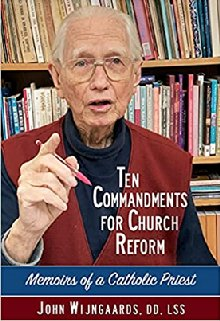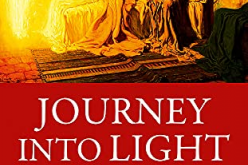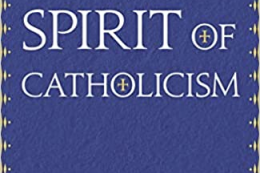Book: Ten Commandments for Church Reform

Ten Commandments for Church Reform, by John Wijngaards, DD, LSS, publisher: Acadian House, 2021
John Wijngaards's latest book is sub-titled, 'Memoirs of a Catholic Priest'. Autobiographical memoirs are a risky venture. That is because they rely on memory and memory is a fallible faculty. Deep inside the memory there are boundary lines between story and history, fact and myth, truth and falsehood. If we are honest we have to admit that those lines can, at times, grow blurry.
Yet memory is so important, especially to those of us on the upper side of eighty years. We are well by our biblical sell-by date. Memory has become a salient feature of our everyday lives.
And it is at the core of our Christian lives and faith. We live to keep alive the memory of what God did in Jesus Christ. Christ told us at the first Eucharist to repeat it in memory of him. Yet there are five differently faceted memories of that first Eucharist moment.
From my own experience I know that every time I tell my story, it gets better and better. Why? Because I control the narrative. I am free to include or omit. The deep red line running between fact and fiction can sometimes turn a pale pink. And it is only human to call our past, "the good old days".
John Wijngaards has set himself a challenging task. He has lived a full and fascinating life. He tells his story with a luxury of detail. It is obvious he is telling it 'like it is', or was. For any Catholic who has lived the experience of post-Vatican II, his book is a significant contribution to the Church's historical memory.
The task he has set himself is even more challenging because he is asking himself, at least implicitly, about what is the meaning of it all. His reply is to try to cipher his memoirs in the key of Ten Commandments for Church Reform. He traces his life-lines, stage by stage, to end at the formulation of a commandment which originates in his lived experience. This makes the book fascinating reading.
John Wijngaards was born in Java, Indonesia, in 1935 of Dutch Catholic parents. His father was headmaster of St Stanislaus Catholic school. His first brush with the Catholic church was through his mother the day he was born. His mother, after a full day in labour, asked the nun nurse to ask the chaplain for communion, as was her daily custom. The good sister refused because Mrs Wijngaards was not yet churched. She was ritually unclean (Levit 12: 2-8) and could not disgrace the Blessed Sacrament. The priest joined the discussion. They did not prevail. Next morning Mrs Wijngaards received Holy Communion in her unchurched condition.
In 1943 the world war made itself felt in John's life when the Japanese arrived, rounded all the foreign civilians up and shipped them to a POW camp. John's father was taken from them to work in the Thai jungle to build a railway bridge over the River Kwai. John himself started and received his primary education in a Japanese POW camp.
The war ended. John's father survived his ordeal. The family were reunited and returned to the Netherlands. John grew up very close to his brother Carel. When he declared his priestly vocation, John followed. Sadly, Carel died suddenly. John continued on. It was a sad and interiorly tumultuously time for him He writes honestly of the ambiguities inherent in his vocation. He says it was influenced by the trauma of war. There were unconscious motivations: guilt for having survived; fear of God's punishments; feeling called to put the world to rights.
John was a keen scholar and read deeply and assiduously. He took an interest in Islam, taught himself Arabic, and took up the Qur'an. But the Qur'an was on the Index of Forbidden Books, a list of 4000 books Catholics could not read without incurring excommunication. The Index was first published in 1559 and stayed in place until 1966.
John obtained permission from the local bishop to read and research Islam. By the time the permission expired John had started theological studies. He requested renewal of the permission. He was flatly refused, his forbidden books confiscated and his room searched thoroughly for other possible violations. Thus John, out of his experience, arrives at formulating the first commandment for church reform: allow theologians and other scholars unrestricted freedom of research.
John was ordained a Mill Hill missionary priest in 1959 and sent to Rome for further studies. He had already articulated for himself that he was going to be a "priest for people", not of the institution. His experience of struggling for that ideal brings him to the second commandment: the first priority of pastoral leaders is caring for people, not upholding ecclesiastical institutions.
Vatican II convened in 1962 while John was studying in Rome. He had ample opportunity to observe the shenanigans of members of the Roman Curia to keep the Church from the reforms which many bishops and others were clamouring for. The experience of curial Rome with its entrenched bureaucracy and rancid conservatism convinced John of his third commandment: select perceptive administrators in the Roman curia, not narrow-minded bureaucrats intent on blocking Church reform.
In the mid-1960s John was assigned to the Mill Hill mission to Hyderabad, India, where he was appointed professor of Sacred Scripture. In succeeding years John witnessed the gradual strangling of church renewal. The principal instrument used to frustrate reform was the appointment of bishops who were out of step with the advancement of reform. What he witnessed in the Netherlands and other places, I myself witnessed in Lima, Peru where I lived between the years 1967 and 1989: the gradual dismantling and disarticulation of a nascent liberationist church having opted for the poor in their struggle for dignity, rights and justice.
John Wijngaards has given us a testimony of constant concern and struggle for a church at the service of the world, able to dialogue with all seekers after the truth. Every one of the commandments for the reform of the church are articulated from the concrete experience of living at the service of the Church. When Pope John Paul II declared definitively that women could not be ordained to the priesthood, John's conscience could not bear it. It was a step too far and in the wrong direction. John resigned his priestly ministry.
Since then he has laboured tirelessly to convince the Church that women have tremendous gifts of ministry and leadership to give to the people of God. He has become an Apostle of Women's Ministry in the Church. He continues doing that to this day.

















